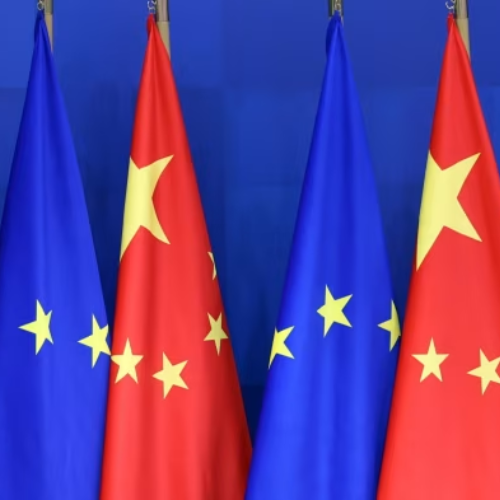In recent years, China has had a tense relationship with the European Union (EU). This began when the EU imposed sanctions on China due to allegations of human rights violations in the Xinjiang region, where the Uyghur Muslim minority lives. In response, China took action against several members of the European Parliament (MEPs). These MEPs were banned from traveling to China, and their activities were restricted.
The sanctions were a result of the EU’s decision to take a stand against China’s actions in Xinjiang, where reports of abuse and forced labor have raised concerns among international human rights organizations. The EU responded to these reports by imposing sanctions on Chinese officials and companies accused of being involved in the alleged abuses. This caused tensions between the two sides and led to a freeze in relations, especially in trade.
The sanctions were also a major obstacle to an important agreement known as the Comprehensive Agreement on Investment (CAI). The CAI was a trade deal designed to deepen the economic relationship between China and the EU. However, due to the sanctions and the political pressure, the European Parliament refused to approve the agreement. This led to a significant setback in trade talks.
Trump Set to Slash 145% China Tariffs in Historic Trade Shift – But Not to Zero
China’s Decision to Lift the Sanctions
Now, China is trying to make amends. The Chinese government has decided to lift the sanctions on the European lawmakers. This move comes as part of China’s efforts to improve its relationship with the EU and revive the CAI, which had stalled due to the sanctions. China hopes that lifting these sanctions will pave the way for smoother trade negotiations and show that it is willing to work with the EU again.
A spokesperson for the European Parliament confirmed that discussions with China are nearing completion. The removal of the sanctions would allow for better cooperation between China and the European Union, especially in trade. Once the Chinese government officially announces that the sanctions are lifted, the President of the European Parliament will inform other European lawmakers.
This gesture is seen as an attempt by China to rebuild relations with the EU, which has become increasingly important as China faces a significant trade challenge with the United States. After the trade war launched by former President Donald Trump, China has been hit with heavy tariffs by the U.S., making it harder for Chinese products to reach the American market. As a result, China is looking to strengthen its ties with Europe to compensate for this lost access.
Current State of EU-China Relations
Despite the move to lift sanctions, the EU’s relationship with China remains complicated. Although China hopes to revive the CAI, many EU officials are skeptical. The EU has been very critical of China in recent years, especially on issues like human rights and trade practices. The EU has also launched several investigations into Chinese trade practices, such as unfair competition and the opening of Chinese markets to European companies.
“China Track” Fuels Russia’s $245 Billion Trade as It Sidesteps Western Sanctions
Even though China’s decision to lift sanctions may lead to improved relations, it does not necessarily mean that the Comprehensive Agreement on Investment will be revived easily. Some EU officials believe that the CAI is now outdated and may no longer hold the same value it did when it was originally proposed. The global trade environment has changed, and the EU has become more cautious in its dealings with China.
Ongoing Challenges in EU-China Trade Talks
Another point of concern is that the European Parliament’s sanctions on Chinese entities are still in place. This means that while the MEPs’ sanctions may be lifted, there are still other issues standing in the way of full reconciliation between China and the EU. The EU continues to press China on matters like market access, trade fairness, and human rights.
In the midst of these challenges, China is doing its best to rebuild its trade relationship with Europe. The removal of sanctions on European lawmakers is one step in that process, but it remains to be seen whether this will lead to any meaningful changes in the trade agreement. While the CAI was once seen as a potential boost for EU-China relations, its future now appears uncertain.
The lifting of sanctions marks a new chapter in China’s efforts to mend ties with the EU. Whether this will lead to a stronger, more cooperative relationship is still unclear, but it is a sign that both sides are willing to work toward better diplomatic and trade ties.


